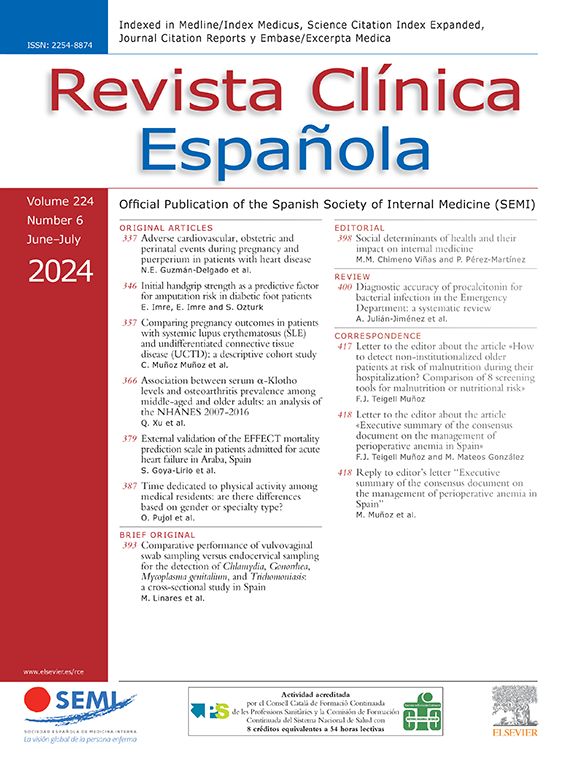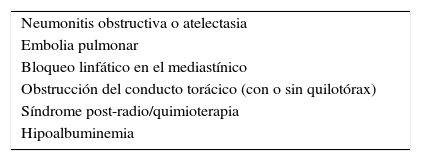La biopsia pleural está especialmente indicada en las siguientes circunstancias: a) análisis del líquido pleural no concluyente y estudio de esputos negativo, si no se dispone de adenosina-desaminasa (ADA); b) sospecha de tuberculosis multirresistente; c) necesidad de distinguir entre pleuritis tuberculosa (si cursa con neutrofilia) y derrame paraneumónico complicado; d) derrame pleural maligno coexistiendo con ADA muy elevada; e) derrame coexistiendo con cáncer de pulmón y con citología pleural negativa; f) sospecha de mesotelioma, y g) necesidad de aplicar retratamiento en pacientes con recaída tras quimioterapia. Es recomendable hacer biopsia con aguja guiada por técnicas de imagen en a) y b), y sería preferible hacer toracoscopia en el resto de las situaciones.
Pleural biopsies are especially indicated in the following circumstances: a) inconclusive pleural fluid analysis and negative sputum study, if adenosine deaminase (ADA) levels are unavailable; b) suspected multi-resistant tuberculosis; c) a need for differentiating tuberculous pleurisy (if it progresses with neutrophilia) and complicated parapneumonic effusion; d) malignant pleural effusion coexisting with very high ADA levels; e) effusion coexisting with lung cancer and negative pleural cytology; f) suspected mesothelioma; and g) need for implementing re-treatment for patients with relapse after chemotherapy. Image-guided needle biopsy is recommended for cases a and b, while thoracoscopy is preferable for the other cases.
Article
Diríjase desde aquí a la web de la >>>FESEMI<<< e inicie sesión mediante el formulario que se encuentra en la barra superior, pulsando sobre el candado.

Una vez autentificado, en la misma web de FESEMI, en el menú superior, elija la opción deseada.

>>>FESEMI<<<







